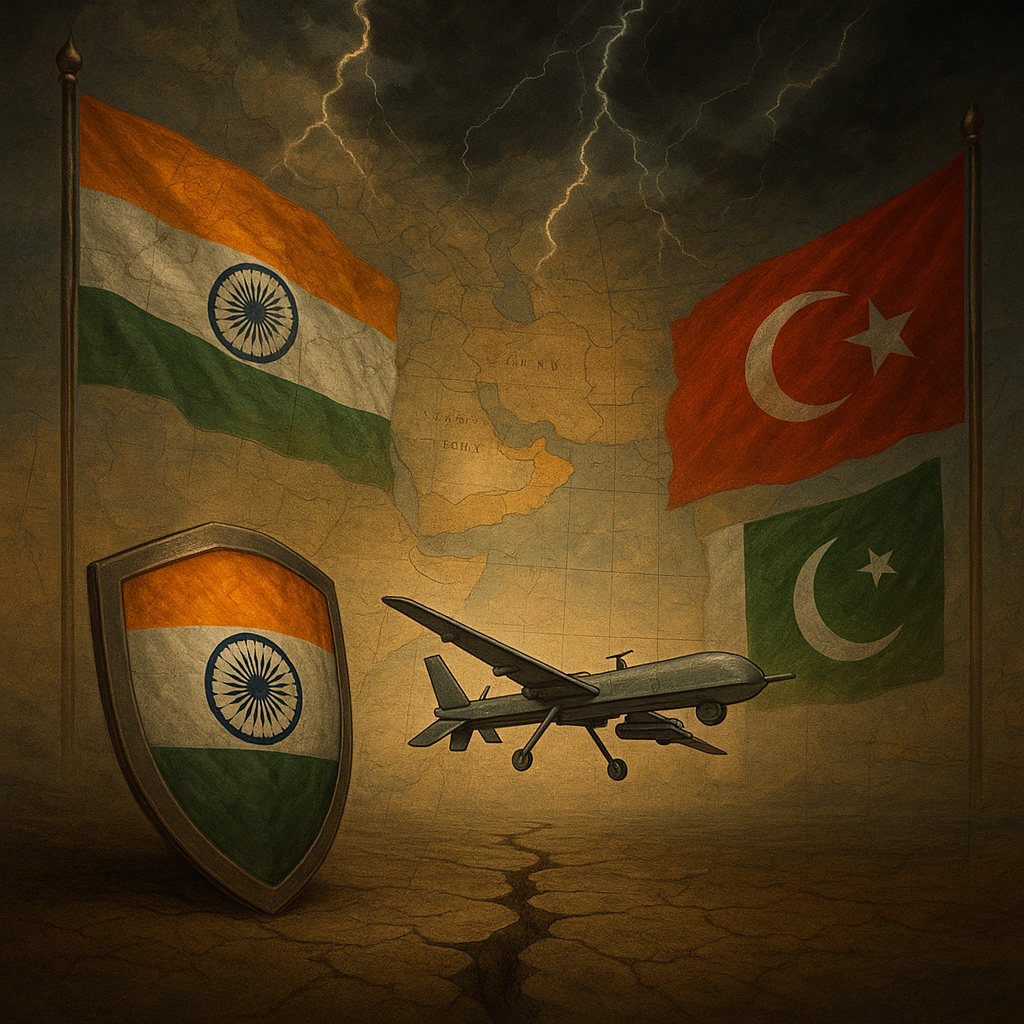
- There has been a long-standing economic partnership between these nations, but it is currently facing tension due to Turkey’s backing of Pakistan, which has strained diplomatic ties between the two.
- In 2024, Indian tourists spent approximately ₹4,000 crore (roughly $400 million) in Turkey, which significantly boosted the local economy.
- The Confederation of All India Traders (CAIT) has called for a halt to travel and trade with Turkey and Azerbaijan due to their support for Pakistan amid the ongoing crisis.
- For Turkey, the consequences of alienating a significant trading partner and tourist destination could be serious, particularly if India’s boycott starts to gain momentum.
India and Turkey’s relationship is historically marked by a mix of economic co-operation and political interests, which has now faced significant challenges in 2025, largely due to Turkey’s open support to Pakistan during India’s military operation “Operation Sindoor”. This operation not only underscored long-standing tensions between India and Turkey but also exacerbated the existing pressures between India and Pakistan. Recent developments have led to public boycotts, diplomatic countermeasures, cancelling educational MoUs, economic disparity signalling a raging phase in bilateral relations.
Evolution of India-Turkey Relations
There is are deep connection between India and Turkey. The first exchange of political operations between the Ottoman Sultans and the Muslim autocrats of the key dates back to the time 1481- 82. During the Balkan Wars in 1912, renowned Indian independence warrior Dr. M.A. Ansari led a medical mission to Turkey, showing historical ties between the two countries. In the 1920s, India also supported Turkey’s war of independence and the establishment of the Turkish Republic [1]. Moreover, after independence, diplomatic relations and ambassadors were exchanged in 1948. Over the decades, economic and cultural exchanges grew.
In 2023, India’s trade with Turkey amounted to $10.43 billion, with India being the dominant exporter. Major items exported by India to Turkey included refined petroleum, automotive vehicles and components, steel, chemicals, pharmaceuticals, precious stones and textiles. In contrast, Turkey’s exports to India included textiles, plastics, fruits, marble, gold, machinery and crude oil[2].
In 2024, Indian tourists spent approximately ₹4,000 crore (roughly $400 million) in Turkey[3], which significantly boosted the local economy. But deeper cooperation has always been hampered by persistent political differences, especially Turkey’s steadfast support for Pakistan on the Kashmir dispute.
The 2025 Flashpoint: Operation Sindoor
The main source of discord between India and Turkey arises from Turkey’s response to India’s Operation Sindoor, notably the Foreign Ministry’s denunciation of India’s military actions and President Erdogan’s endorsement of Pakistan. The purported utilisation of Turkish-manufactured drones and arms transfers from Pakistan to India further exacerbated the situation.
Turkey has seen a significant shift under Turkish President Recep Tayyip Erdogan, from a generally secular, pro-Western democracy to one that is leaning towards Islamist populism[4]. This stance has put it at odds with India, particularly as Ankara has repeatedly raised the Kashmir issue at international forums, a move India views as interference in its internal affairs.
Public and Economic Backlash in India
Public outrage has surged against Ankara, which India has referred to as a ‘friend.’ Indians are now responding to Turkey through social media campaigns employing hashtags like #BoycottTurkey and #BoycottTurkeyAzerbaijan. Indian tourists, who had been increasingly drawn to Turkey for its affordable choices and cultural sites, have begun to cancel their travel arrangements.
The Confederation of All India Traders (CAIT) has called for a halt to travel and trade with Turkey and Azerbaijan due to their support for Pakistan amid the ongoing crisis. This comes after Turkey criticised India’s military actions and claimed that drones from Turkey were employed in assaults initiated from Pakistan. CAIT aims to deliver a powerful political and economic message, urging the general public and Indian traders to rethink their relationships with these countries[5].
The Indian government has initiated definitive actions to reevaluate its relationships. On May 15, the Bureau of Civil Aviation Security (BCAS) revoked the security certification of Celebi Airport Services India, a subsidiary of Celebi Aviation in Turkey, citing national security concerns. Celebi, which handles ground and cargo operations at nine major Indian airports, including Delhi and Mumbai, faced scrutiny due to its Turkish links. The company explained that “it is not a Turkish organisation by any standard and completely adheres to globally established norms of corporate governance, transparency and impartiality, with no political sympathies or linkages to any foreign government or individual”.
Additionally, India is reviewing aviation and infrastructure deals with Turkey. Furthermore, all initiatives involving Turkish enterprises are being scrutinised; the Government of India is re-evaluating all links, including those that have ceased, and is currently focused on collecting and compiling extensive data and documents linked to each involvement across public and private sector projects.
Looking Ahead
As of May 2025, India and Turkey are in a critical situation concerning their bilateral relations. Although there has been a long-standing economic partnership between these nations, it is currently facing tension due to Turkey’s backing of Pakistan, which has strained diplomatic ties between them. India’s comprehensive reaction, which includes public boycotts, evaluations of economic impacts, and changes in diplomatic approaches, highlights its determination to confront what it views as hostile actions.
For Turkey, the consequences of alienating a significant trading partner and tourist destination could be serious, particularly if India’s boycott starts to gain momentum. Concurrently, India is anticipated to strengthen its alliances with Turkey’s rivals, which will change the regional dynamics. If Turkey fails to modify its stance, the once-promising relationship between India and Turkey could further deteriorate, resulting in lasting effects for both nations.
References:
- [1] https://www.mea.gov.in/Portal/CountryQuickLink/840_Turkey_December_2014_eng_1_.pdf
- [2] https://indbiz.gov.in/indias-trade-with-turkey-and-azerbaijan-faces-uncertainty-amid-geopolitical-tensions/
- [3] https://economictimes.indiatimes.com/news/new-updates/indians-spent-over-400-million-in-turkey-and-azerbaijan-in-2024-now-cancelling-trips-after-both-nations-supported-pakistan/articleshow/121179569.cms?from=mdr
- [4] https://ianslive.in/under-erdogan-pakistans-all-weather-brother-turkey-is-clearly-hostile-to-india–20250515195558
- [5] https://cait.in/
Megna Devkar is a Ph.D. Research Scholar at K.C. Law College with research and writing expertise in social, political, and legal issues. Views expressed are the author’s own.
